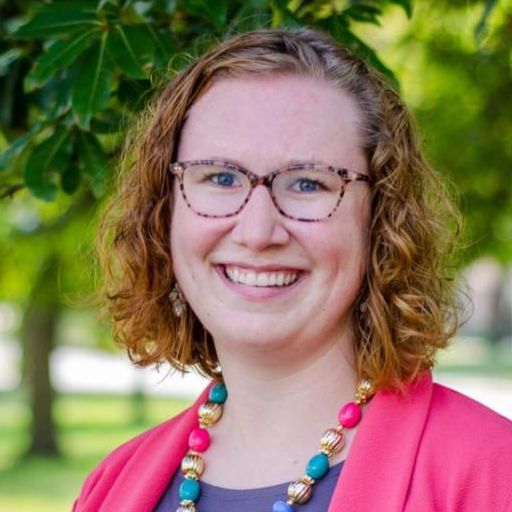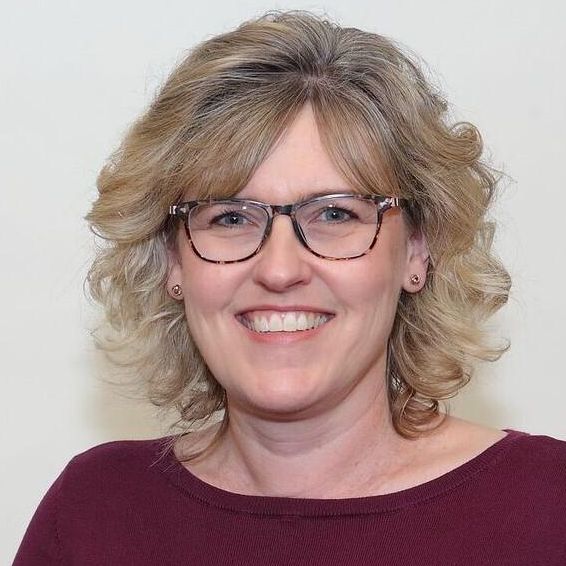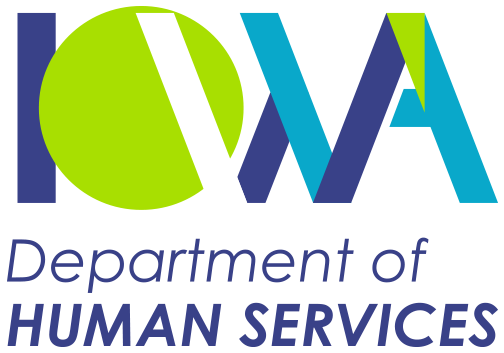Home > Permanent Supportive Housing | A Monthly Webinar Series

Iowa Perspectives on Permanent Supportive Housing
Thursday, April 22, 12-1 p.m.
Watch the webinar | Download the slides | Download the flyer
Overview:
This webinar will feature a series of Permanent Supportive Housing stakeholders from across Iowa who will share their unique perspectives on this evidence-based practice and discuss the road forward. Each of these six perspectives yields new insights into the model, how it is funded, and how services are provided. This webinar will highlight the feasibility of implementing Permanent Supportive Housing and the importance of a broad coalition of stakeholders. Content will be rooted heavily in the Permanent Supportive Housing context in Iowa, but all are welcome to attend.
Learning objectives:
Speakers:
 Marissa Eyanson serves as the Division Administrator of Community Mental Health and Disability Services (MHDS) for the Iowa Department of Human Services (DHS). In this role, she leads teams responsible for coordinating and assuring that all Iowans have access to high quality services and supports across the full spectrum of mental health and disability related needs. Marissa is a life-long small-town Iowan and graduate of Iowa State University. Her background and experience bring a unique ability to pivot perspectives from provider to payer to regulator. Marissa’s first job was as a direct support professional in an Intermediate Care Facility for Individuals with Intellectual Disability (ICF/ID), and she has dedicated her career to working in the mental health and disability services field in Iowa.
Marissa Eyanson serves as the Division Administrator of Community Mental Health and Disability Services (MHDS) for the Iowa Department of Human Services (DHS). In this role, she leads teams responsible for coordinating and assuring that all Iowans have access to high quality services and supports across the full spectrum of mental health and disability related needs. Marissa is a life-long small-town Iowan and graduate of Iowa State University. Her background and experience bring a unique ability to pivot perspectives from provider to payer to regulator. Marissa’s first job was as a direct support professional in an Intermediate Care Facility for Individuals with Intellectual Disability (ICF/ID), and she has dedicated her career to working in the mental health and disability services field in Iowa.
 Karen Hyatt is the Emergency Mental Health Specialist for the Division of Community Mental Health and Disability Services within the Department of Human Services and serves as the Disaster Behavioral Health Coordinator for the state. She has work emphasis in crisis stabilization services, peer support and the Office of Consumer Affairs.
Karen Hyatt is the Emergency Mental Health Specialist for the Division of Community Mental Health and Disability Services within the Department of Human Services and serves as the Disaster Behavioral Health Coordinator for the state. She has work emphasis in crisis stabilization services, peer support and the Office of Consumer Affairs.
 Courtney Guntly is the Iowa Balance of State Continuum of Care Director. In this role, she supports HUD-funded housing programs in their efforts to end homelessness across Iowa’s 96 counties making up the Balance of State, all while working strategically with partners to achieve this vision. Courtney holds a Master of Social Work from Washington University in St. Louis and a bachelor’s degree in social work from Luther College.
Courtney Guntly is the Iowa Balance of State Continuum of Care Director. In this role, she supports HUD-funded housing programs in their efforts to end homelessness across Iowa’s 96 counties making up the Balance of State, all while working strategically with partners to achieve this vision. Courtney holds a Master of Social Work from Washington University in St. Louis and a bachelor’s degree in social work from Luther College.
 Cynthia Latcham is the Executive Director at Anawim Housing, a nonprofit that focuses on implementing permanent supportive housing programs using evidence-based principles of housing first, harm reduction, and trauma-informed care. The programs and services offered through Anawim Housing have existed for over 20 years, with Cynthia leading the team since 2017.
Cynthia Latcham is the Executive Director at Anawim Housing, a nonprofit that focuses on implementing permanent supportive housing programs using evidence-based principles of housing first, harm reduction, and trauma-informed care. The programs and services offered through Anawim Housing have existed for over 20 years, with Cynthia leading the team since 2017.
 Terri Rosonke is the Housing Programs Manager within the Iowa Finance Authority’s Housing Programs Division. She is responsible for managing the State Housing Trust Fund and leads the agency’s Olmstead compliance, permanent supportive housing, and disaster recovery initiatives.
Terri Rosonke is the Housing Programs Manager within the Iowa Finance Authority’s Housing Programs Division. She is responsible for managing the State Housing Trust Fund and leads the agency’s Olmstead compliance, permanent supportive housing, and disaster recovery initiatives.
 Maria Walker is the Program Planner for Polk County Health Services. She supports, plans, implements and oversees contract management for employment and day services. She provides staff support for the Polk Regional Adult Advisory Committee and leads provider relations and provider contracting. Walker came to PCHS in August 1998 from Systems Unlimited, a provider agency in Iowa City and was the Employment Director. She has a Bachelor of Science in Rehabilitation Administration from Drake University.
Maria Walker is the Program Planner for Polk County Health Services. She supports, plans, implements and oversees contract management for employment and day services. She provides staff support for the Polk Regional Adult Advisory Committee and leads provider relations and provider contracting. Walker came to PCHS in August 1998 from Systems Unlimited, a provider agency in Iowa City and was the Employment Director. She has a Bachelor of Science in Rehabilitation Administration from Drake University.
A Roadmap for Rural Permanent Supportive Housing
Thursday, March 18, 1:30-2:30 p.m.
Watch the webinar | Download the slides | Download the flyer
Overview:
This webinar will share best practices and lessons learned about creating permanent supportive housing programs for rural communities that meet SAMSHA fidelity guidelines. The presentation covers the philosophy, funding, and solutions for program challenges and potential next steps for interested communities.
Learning objectives:
Speaker:
 Jennifer Lopez is a permanent supportive housing consultant with 22 years of experience in the field of affordable housing and homelessness programming. Based in Durango, Colorado, Lopez brings significant experience and ideas from multiple communities in her role as the co-founder and manager of Project Moxie, a consulting firm that helps communities plan for the implementation of permanent supportive housing. Since 2017, she has provided technical assistance to develop permanent supportive housing (PSH) in New Mexico, Colorado and Mammoth Lakes, California. In 2019, Lopez helped to facilitate the first affordable housing investment strategy for the Colorado Health Foundation as part of its health equity work in Colorado. Lopez also brings significant experience in affordable housing finance and program development to her work with local communities. This includes structuring complex bond and tax credit financing for affordable housing and supportive housing. From 2014-2017, Lopez worked across Colorado’s state agencies as the Director of Homelessness Initiatives for then-Gov. John Hickenlooper, implementing outcome-based policies and programs to prevent and end homelessness in Colorado.
Jennifer Lopez is a permanent supportive housing consultant with 22 years of experience in the field of affordable housing and homelessness programming. Based in Durango, Colorado, Lopez brings significant experience and ideas from multiple communities in her role as the co-founder and manager of Project Moxie, a consulting firm that helps communities plan for the implementation of permanent supportive housing. Since 2017, she has provided technical assistance to develop permanent supportive housing (PSH) in New Mexico, Colorado and Mammoth Lakes, California. In 2019, Lopez helped to facilitate the first affordable housing investment strategy for the Colorado Health Foundation as part of its health equity work in Colorado. Lopez also brings significant experience in affordable housing finance and program development to her work with local communities. This includes structuring complex bond and tax credit financing for affordable housing and supportive housing. From 2014-2017, Lopez worked across Colorado’s state agencies as the Director of Homelessness Initiatives for then-Gov. John Hickenlooper, implementing outcome-based policies and programs to prevent and end homelessness in Colorado.
The Dynamics of Homelessness and U.S. Policy Responses
Thursday, Feb. 4, 12-1 p.m.
Watch the webinar | Download the slides | Download the flyer
Overview:
Persons with serious mental illnesses are more likely than others to experience homelessness. Homelessness policies in the U.S. have evolved as research has informed us about the dynamics of homelessness. Federal policies reflect research showing that a relatively small number of people who experience homelessness remain homeless for long periods of time, often because of disabilities that make it difficult to exit without structured support and housing (Permanent Supportive Housing). Also, federal efforts to address “crisis homelessness” have been deployed, providing assistance through “rapid rehousing” programs to prevent long-term homelessness. The initiative to end veteran homelessness combined these two approaches and led to a 50% reduction in homelessness.
This presentation summarizes the intersection of these research and policy efforts which greatly affect the need for comprehensive housing and support services for persons with serious mental illnesses. As a result of this seminar, attendees will learn:
Speaker:
 Dennis Culhane, PhD, is the Dana and Andrew Stone Professor of Social Policy at the School of Social Policy and Practice at the University of Pennsylvania. Culhane is a nationally recognized social science researcher with primary expertise in the field of homelessness. From July 2009 to June 2018 he served as Director of Research at the National Center on Homelessness Among Veterans, an initiative of the U.S. Department of Veterans Affairs. He is a leader in the integration of administrative data for research and directs Actionable Intelligence for Social Policy (AISP), an initiative that promotes the development of integrated data systems by state and local governments for policy analysis and systems reform.
Dennis Culhane, PhD, is the Dana and Andrew Stone Professor of Social Policy at the School of Social Policy and Practice at the University of Pennsylvania. Culhane is a nationally recognized social science researcher with primary expertise in the field of homelessness. From July 2009 to June 2018 he served as Director of Research at the National Center on Homelessness Among Veterans, an initiative of the U.S. Department of Veterans Affairs. He is a leader in the integration of administrative data for research and directs Actionable Intelligence for Social Policy (AISP), an initiative that promotes the development of integrated data systems by state and local governments for policy analysis and systems reform.
His homelessness work has positioned him as an early innovator in the use of administrative data for research and policy analysis, particularly for populations and program impacts that are difficult to assess and track. Culhane’s work has resulted in federal legislation requiring all cities and states to develop administrative data systems for tracking homeless services in order to receive HUD funding. His work has also been instrumental in a national shift in how cities address chronic homelessness and family homelessness. Culhane’s current research utilizes linked administrative data to better understand and respond to the emerging crisis of aging homelessness. Recently, this work was featured in The New York Times Magazine article, Elderly and Homeless: America’s Next Housing Crisis.

